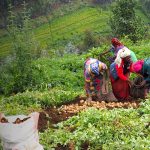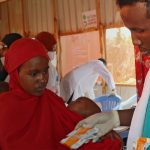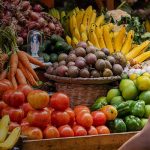The past decade has been marked by multiple, often overlapping, crises. The COVID-19 pandemic, various natural disasters, and the ongoing war in Ukraine have all threatened the fabric of our global food systems. This string of crises has left an indelible mark. In too many places, progress in reducing poverty and malnutrition has been reversed, […]
The global food price crisis threatens to cause a global nutrition crisis
Frequent food crises with spiking prices have become the new normal in the 21st century, bringing urgency to the task of understanding their nutritional impacts on poor and food insecure populations. In a new analysis of 1.27 million children in 44 low- and middle-income countries (LMICs) we show that exposure to food inflation in the womb […]
As global food prices rise, important new data addresses the affordability of healthy diets
IFPRI Insights Food Prices for Nutrition Launch: Responding to the current food crisis and transforming food systems so they can provide affordable healthy diets for all requires reliable and responsive data that can inform policies and interventions. The Food Prices for Nutrition project, a new initiative led by Tufts University, IFPRI, and the World Bank, in collaboration […]
2022 Global food policy report: Climate change and food systems
Global Food Policy Report Climate change threatens our food systems and the multiple development goals linked to sustainable food system transformation. Action is urgently needed, both to increase adaptation and resilience and to achieve major emissions reductions. Current efforts must be stepped up and greatly expanded to ensure food security, nutrition, and well-being for all […]
How nutrition-sensitive agriculture programs can realize both nutrition and gender equality goals
Globally, malnutrition remains unacceptably high, and hard-won progress is further threatened by the impacts of the COVID-19 pandemic. Agriculture, with its critical role in the production, availability and consumption of food, as well as rural livelihoods and incomes, must step up to help address nutrition challenges. Nutrition-sensitive agriculture programs (NSAPs) are one way that agriculture […]
- « Previous Page
- 1
- 2
- 3
- 4
- 5
- 6
- …
- 29
- Next Page »




